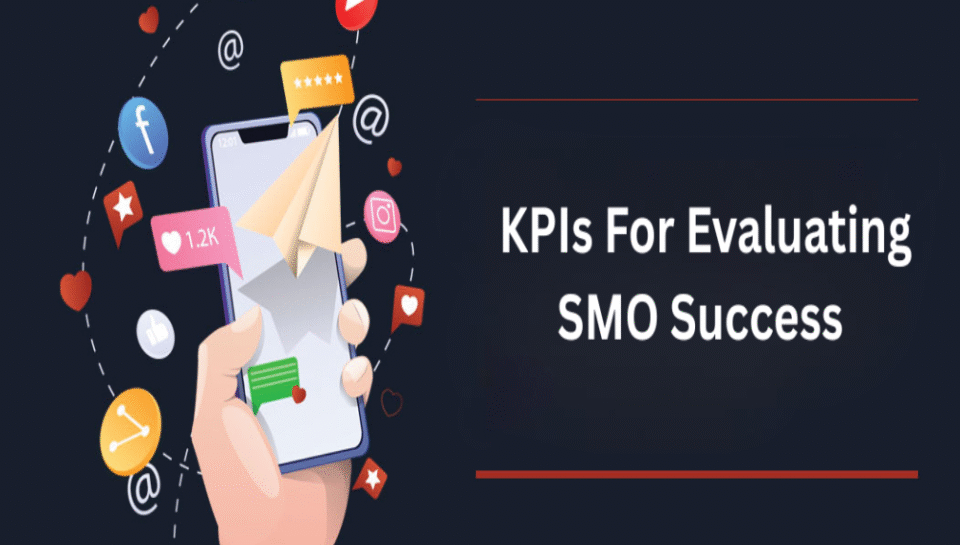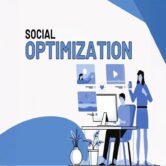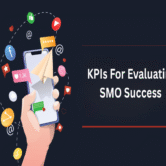
Establish KPIs for evaluating SMO success
Introduction
Social media optimization (SMO) is the strategic process of enhancing a brand’s visibility, engagement, and effectiveness across social media platforms. To determine whether SMO efforts are successful, marketers must establish and monitor specific key performance indicators (KPIs). These measurable metrics help evaluate how well social media strategies align with business goals, identify areas for improvement, and justify resource allocation. Effective KPIs provide clarity, direction, and accountability, turning social media from a creative experiment into a results-driven function of the digital marketing ecosystem.
Engagement rate
Engagement rate is one of the most critical KPIs in SMO. It measures how actively users interact with your content through likes, comments, shares, and clicks. High engagement rates indicate that your audience finds your content valuable and relevant. This metric helps evaluate content effectiveness and platform-specific performance, especially on visual and community-driven platforms like Instagram, Facebook, and LinkedIn.
Reach and impressions
Reach refers to the number of unique users who have seen your content, while impressions indicate the total number of times content is displayed. These KPIs help assess content visibility and awareness. A growing reach demonstrates expanding audience exposure, and tracking impressions helps identify how often users are encountering your content. Both metrics offer insights into content virality and algorithmic performance.
Follower growth rate
While total follower count is considered a vanity metric on its own, tracking follower growth rate over time is a useful KPI. It measures how quickly your audience is expanding and whether your content is attracting the right people. A steady growth rate indicates healthy audience development, while sudden spikes or drops can signal the impact of specific campaigns or content strategies.
Click-through rate (CTR)
CTR measures the percentage of users who clicked on a link, CTA, or profile action compared to total impressions. It’s a direct indicator of how compelling your content is and how effectively it drives users to take action. Whether it’s directing followers to a website, blog, product page, or form, a high CTR signals strong content-to-action alignment and clear messaging.
Conversion rate
Conversion rate is one of the most business-relevant KPIs for SMO. It refers to the percentage of users who complete a desired action—such as signing up, downloading, registering, or purchasing—after interacting with your social media content. Tracking conversions tied to specific campaigns or platforms helps determine which channels contribute most to business goals and ROI.
Social share of voice (SSoV)
SSoV measures how much your brand is being mentioned compared to competitors within your industry or niche. This KPI reflects brand visibility, influence, and competitive positioning. It is especially useful in tracking awareness during campaigns or events. Tools like Brandwatch and Mention help track SSoV by analyzing hashtags, keywords, and brand mentions across platforms.
Sentiment analysis
Beyond numbers, it’s important to understand the tone of conversations around your brand. Sentiment analysis uses tools to categorize mentions as positive, negative, or neutral. A consistently positive sentiment suggests a healthy brand reputation and effective community engagement. On the other hand, spikes in negative sentiment may indicate content missteps, customer dissatisfaction, or public relations issues requiring immediate attention.
Content reach by type
Evaluating which types of content (videos, carousels, reels, stories, polls, etc.) perform best on each platform helps optimize future strategies. This KPI breaks down reach and engagement by content format, revealing audience preferences and helping fine-tune content planning. It ensures that content creation efforts are guided by performance, not assumptions.
Response rate and response time
For brands engaging in social customer service or community management, response rate and response time are critical SMO KPIs. Response rate tracks the percentage of messages or comments that receive replies, while response time measures how quickly they are answered. High responsiveness builds trust, improves satisfaction, and enhances brand perception.
Platform-specific growth performance
Not all platforms deliver equal results. Evaluating KPIs by platform—such as LinkedIn lead generation, Instagram story engagement, or Facebook post reach—allows teams to allocate resources more effectively. This KPI helps identify high-performing platforms, underperforming channels, and emerging opportunities to diversify strategy or content focus.
Conclusion
Establishing KPIs for evaluating SMO success transforms social media into a measurable, strategic pillar of digital marketing. From engagement and reach to conversions and sentiment, these indicators provide the data necessary to understand performance, guide improvement, and demonstrate value. By aligning KPIs with business objectives and audience behavior, marketers can ensure their SMO efforts are both impactful and sustainable. Measuring what matters is the first step toward growing what works.
Hashtags
#SMOKPIs #socialmediaoptimization #engagementmetrics #digitalmarketing #contentperformance #socialmetrics #CTR #conversiontracking #sentimentanalysis #reachandimpressions #clickthroughrate #socialstrategy #brandawareness #audiencegrowth #socialROI #platformperformance #contentKPIs #marketinganalytics #datafirststrategy #communitymetrics #responsivebrand #socialanalytics #marketingmeasurement #socialreach #tracksuccess





